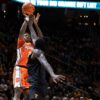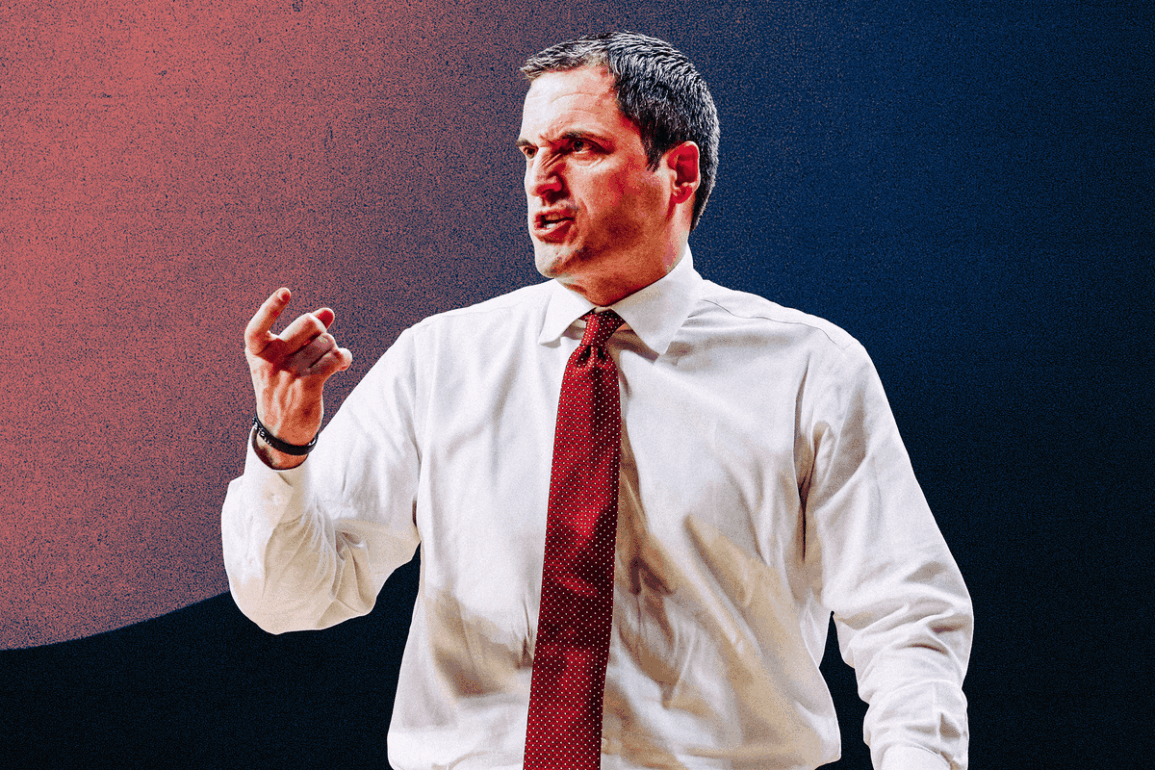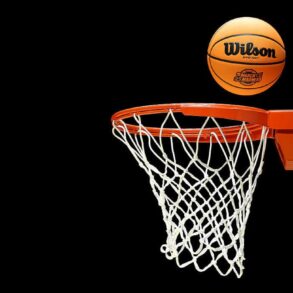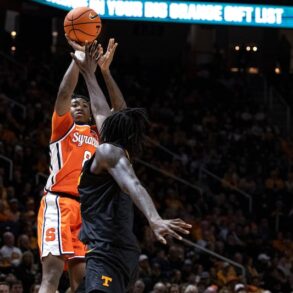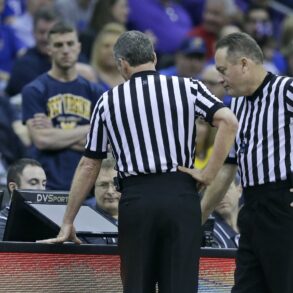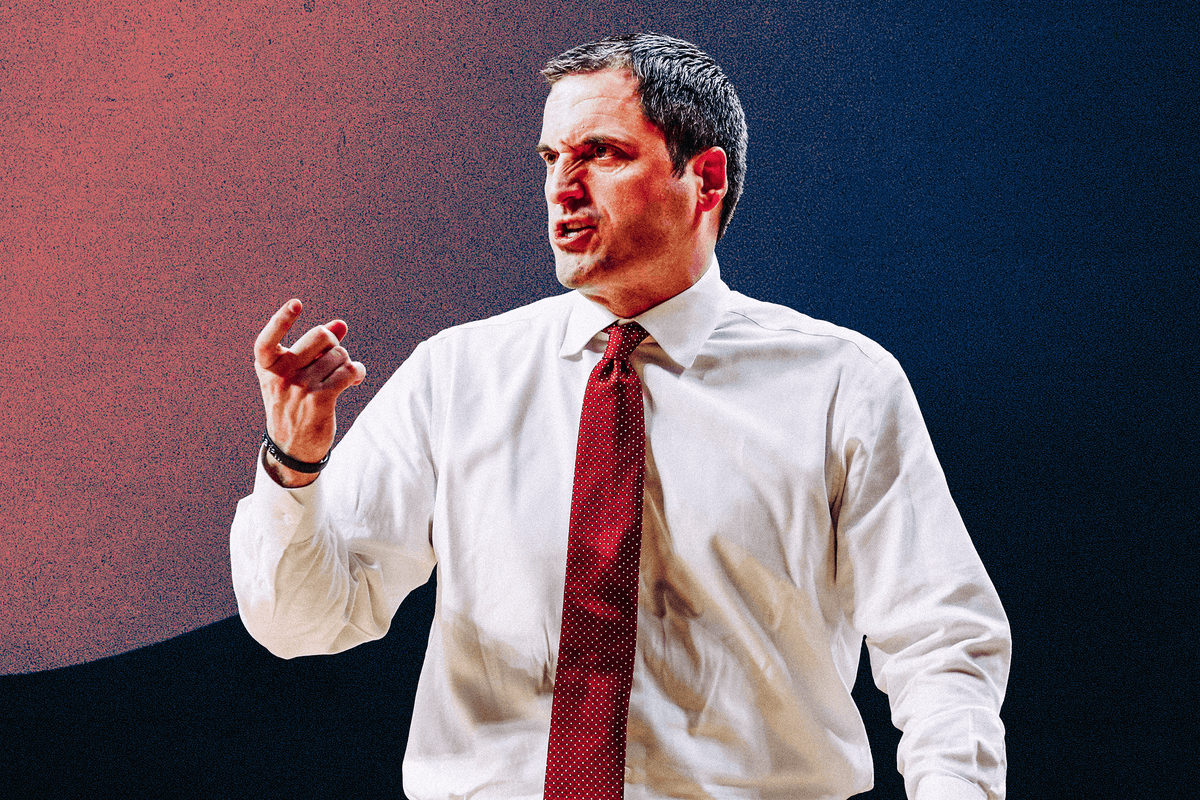
Editor’s note: This story is part of Peak, The Athletic’s new desk covering leadership, personal development and success through the lens of sports. Peak aims to connect readers to ideas they can implement in their personal and professional lives. Follow Peak here.
Steve Prohm was the head coach at Iowa State and coached Tyrese Haliburton for two seasons from 2018-2020.
The first thing that strikes people about Tyrese is his ability to interact with anyone. His charisma. I was no different.
When I was the head coach at Iowa State, I went to Las Vegas in the summer to watch him play in a tournament. One of my assistant coaches had a relationship with Tyrese, but this was my first time watching him in person.
Advertisement
I don’t think he ran up and down the floor more than three times before my assistant coach and I looked at each other like: We need this kid.
He could shoot, he could pass, but it was so much more than his basketball ability. I watched his mannerisms. I watched his personality. I watched his communication. I even watched the way he interacted with the refs. He was talking with them, but he wasn’t pissing them off. He almost had a bond with them. Then he was off talking with teammates or his coaches. He just had such a presence.
I believe the face of your team, your leader, has to connect with people and the community. I knew then he could do that.
Another sign of a great leader is humility. Tyrese had that when he came in the door.
Before his freshman season, we had a reunion with former players. The final night, we were out at a sports bar in town, talking. He looked at me across the table and said, “Coach, this thing was awesome. This is why I wanted to come to Iowa State. I wanted to be around all these former players. I wanted to be around greatness.”
That showed humility.
We had a good team his freshman year. I remember his dad, John, told him: “Find the best older player that has a routine and understands how to work and get with him and learn how to work every single day.”
For us that season, that player was Marial Shayok, a fifth-year senior. Tyrese kept his eyes on everything Marial did that year, and because of that, I think he learned how to really work at the highest level. That, too, showed humility.
Early on in Tyrese’s freshman season, an NBA scout came to one of our practices. We practiced for an hour or two, and when we were winding down, the scout called me over.
“You know who your highest draft pick is going to be?” he asked me.
I didn’t know. We had Shayok and Talen Horton-Tucker, another freshman who was a big-time recruit. I thought the scout could have been talking about several guys.
Advertisement
“Tyrese Haliburton,” he said.
“Really?” I said. “Tell me why.”
Tyrese had maybe played a total of 10 or 11 games at that point. “Man, I’ve watched him all practice,” the scout said. “He resonates with the older guys. He listens to everything they say. He fits into everything you’re doing. He takes coaching. His presence and demeanor are always positive, he always has energy. He’ll be your highest draft pick.”
It’s a good reminder: People are always watching.
Tyrese’s personality, his smile, his demeanor allowed him to connect with anybody from any walk of life. Because of his presence, because of his personality, he empowered other guys to be better.
After Tyrese’s freshman year, I met with him to talk about his future. He had some NBA interest, and I wanted to see what he wanted to do. It was the easiest talk. He already had a plan.
“I’m coming back to school,” he told me. “I don’t need to go through all these workouts. I need to get here and get bigger, stronger and better. Next year, if I’m a lottery pick, I’m going to leave.”
That summer, he played for the United States at the FIBA Under-19 World Cup. He came back for his sophomore year with another level of confidence.
He was one of the guys who came to the gym or office every day with a smile and personality. You always knew he was there. You could always hear him.
He was just so positive, and his energy was contagious. That was one of his biggest traits as a leader. He kept everybody fresh and excited.
During his sophomore season, however, he broke his wrist. He sat out for a little while and tried to come back and then hurt it again. It just wasn’t smart for him to keep playing. He needed surgery.
We knew then he was going to be a lottery pick. A lot of guys would have left school and gone to get ready for the draft on their own, so he and I met again to talk it out. It was also an easy conversation: He was headed for the NBA Draft, but he wasn’t leaving the team.
Advertisement
“Coach, I’m going to be at every practice,” he said. “I’m going to be at every game. I’m not going nowhere. We’re gonna finish this thing out together.”
His mom, Brenda, still came to every game. Tyrese was as animated and into it, with a cast on his hand, as when he was playing. He understood that it was more than just about him. He knew it was important that he was still a connector.
Two months ago, I got let go from Murray State. Right around that time, Tyrese hit a game-winner against the Milwaukee Bucks. The next day, I was in the school pickup line to get my 10-year-old. My phone rang. It was Tyrese.
He told me: “Hey, Coach, I just wanted to check in on you. I just wanted to make sure you know I’m thinking about it. If you need anything, let me know.”
When you get fired, your whole family goes through it. For my kids to hear him on the phone and think, “You know what? My dad’s done all right,” that helped in my recovery.
That’s what the great ones do. When they know people are down, they lift them up. That’s leadership.
— As told to Jayson Jenks
(Illustration: John Bradford / The Athletic; David Purdy / Getty Images)
This post was originally published on this site be sure to check out more of their content.



